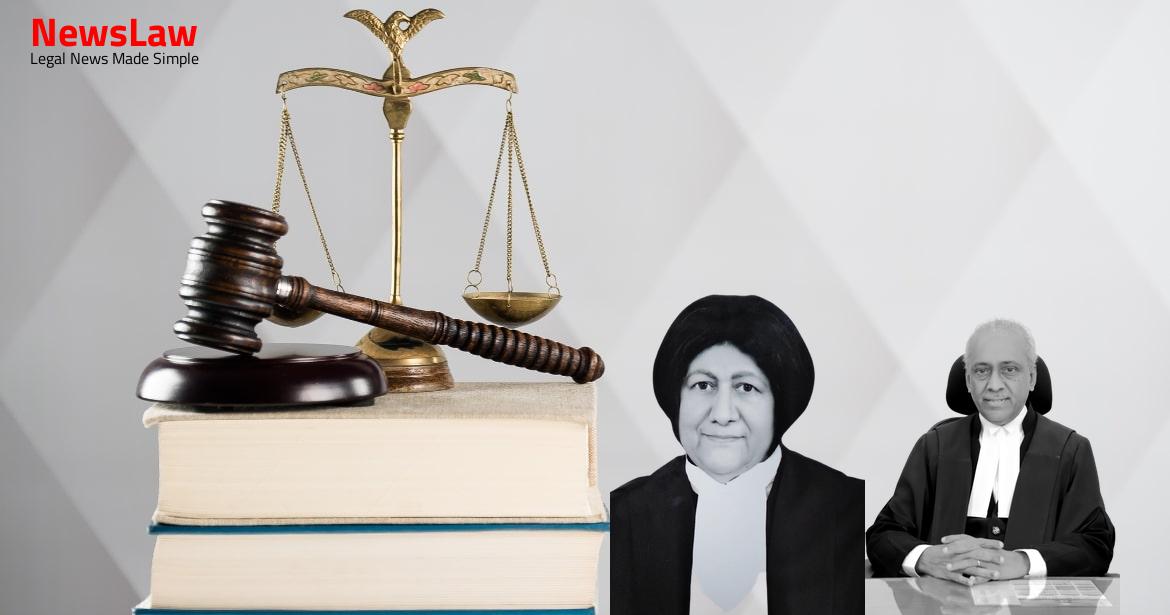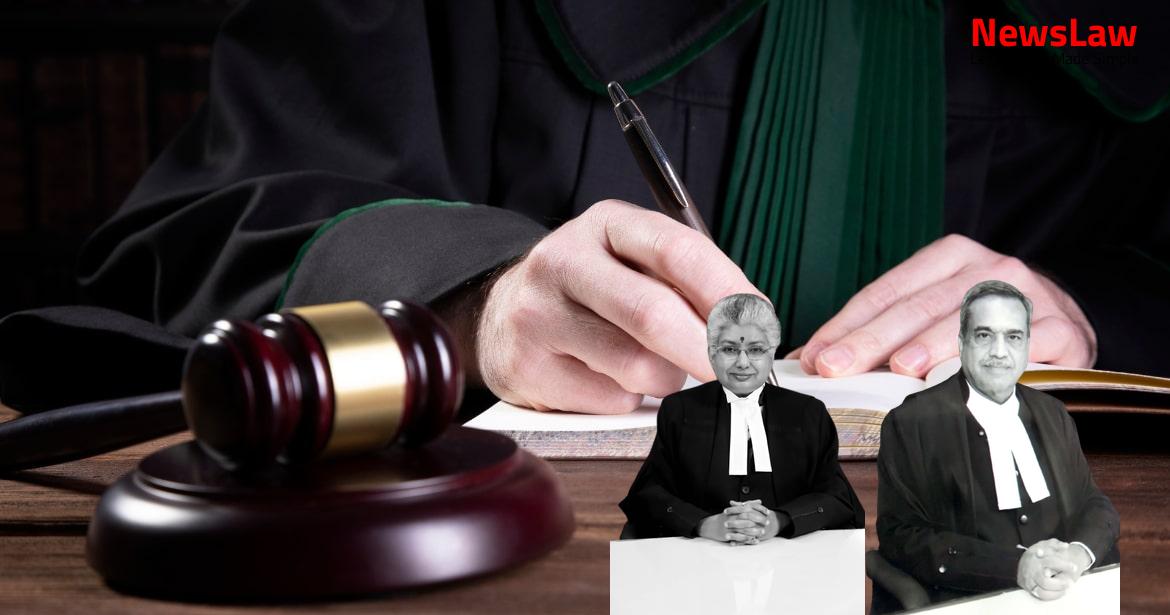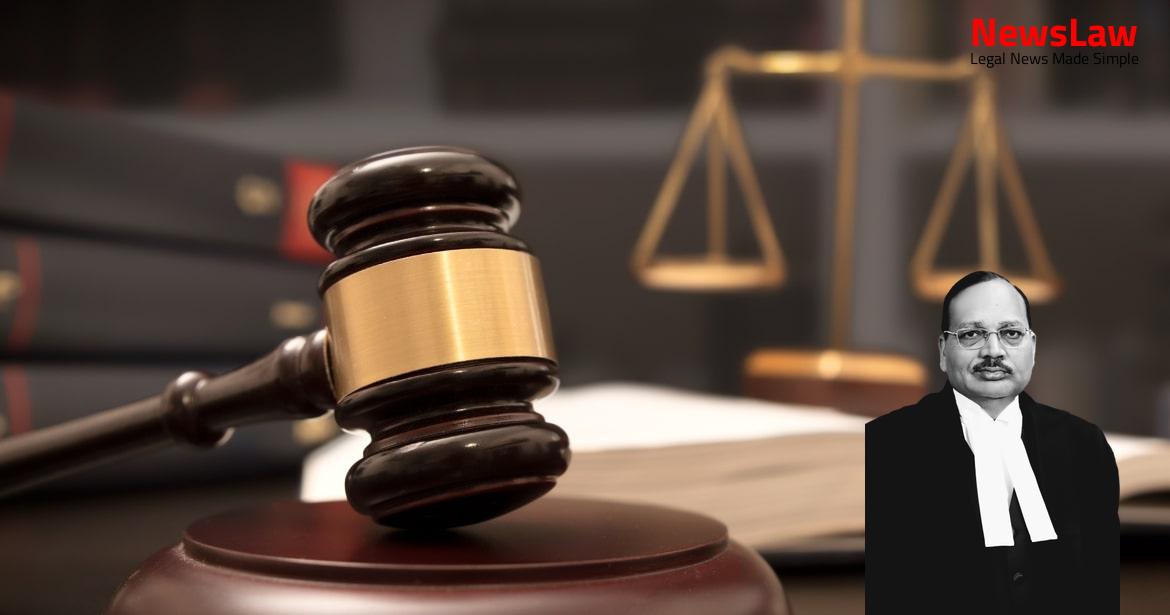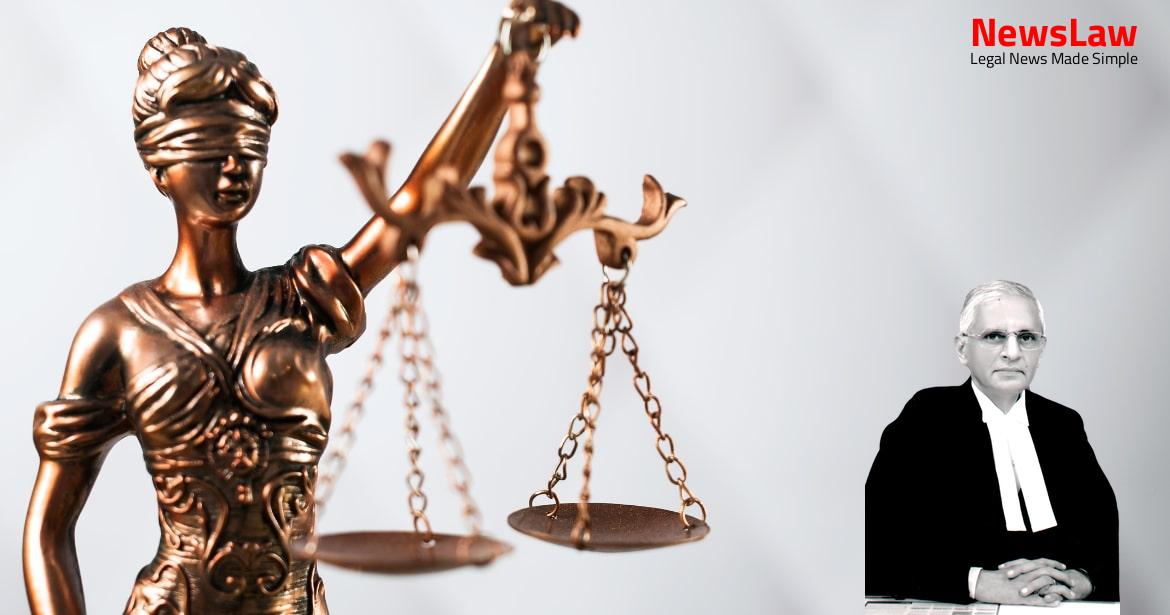Delve into the in-depth legal analysis conducted by the court regarding shebait rights in temples. This summary sheds light on the complex legal aspects considered by the court in the context of temple management and inheritance rules.
Facts
- Appellant submitted that the judgment and order dated 4 March 2020 had been recalled on 16 September 2020 before the District Administration could take over the management of the temple.
- On or about 29 October 1985, all three main idols of the temple were registered under the Antiquities and Art Treasures Rules, 1973 in the name of late Chaturanan Pant, father-in-law of the Appellant.
- Review Application MCC No.257 of 2020 filed by the Appellant was dismissed for being filed by a third party.
- Appellant claims to be the Vice President of the Mandir Samiti formed in 2012.
- Application for impleadment in PIL filed by Respondent No.1 was filed by the Appellant on 22 September 2020.
- State would not interfere in the religious activities of the temple or the shebait rights of the shebaits.
- Chitai Golu Devta Temple was constructed in 1919 by late Pandit Keshav Dutt Pant and late Bhola Dutt Pant.
- The Division Bench disposed of the PIL, directing the Managing Committee to continue due to serious disputes regarding shebait rights in the temple.
- The Appellant claims that the judgement was passed without hearing them.
- The Counter Affidavit by the Respondent State proposed a Temple Management Committee with specified members.
- The Single Bench dismissed the Writ Petition citing the constitution of an independent committee and directed the Appellant to move an application before the Division Bench.
Also Read: Interpretation of Corporate Guarantor under IBC
Arguments
- The Appellant owns and runs a marriage hall adjacent to the temple and also runs a shop.
- The appointment of an independent Managing Committee for managing the temple is considered a secular matter and can be regulated by the State.
- Mr. Gupta, representing the Appellant, argued that shebaitship is vested in the founder when an idol is installed and a temple is constructed.
- Unless the founder has disposed of the shebaitship in a specific manner or there is some custom indicating a different mode, shebaitship follows the line of inheritance from the founder.
- The Court cannot establish a new rule of succession or alter the existing rule unless there are specific circumstances or customs showing otherwise.
- Mr. Gupta cited the case of Sri Marthanda Varma v. State of Kerala & Ors. to support his submission.
Also Read: Judicial Promotion Dispute Resolved
Analysis
- The judgment in Guruvayoor Devaswom Managing Committee v. C. K. Rajan was rendered in the context of the Guruvayoor Temple case.
- The case of Jagdish Prasad v. Mahant Tribhuwan Puri was referred to by Mr. Gupta.
- The Court held that each case is decided based on its specific facts and circumstances.
- Financial hardship of the Appellant is deemed irrelevant to the appeal.
- The Division Bench considered factors such as land records, disputes over shebait rights, and family disputes in relation to the temple.
- The High Court’s decision was deemed proper as the disputes should be settled through a civil suit.
- The number of devotees and public sentiments are significant considerations.
- The State has the authority to oversee non-religious affairs of temples on government land.
- Management rights differ between temples, such as the Padmanabhaswamy Temple and the Chitai Golu Devta Temple.
- No financial hardship is faced by the Appellant; inter-family disputes over temple management are evident.
- The Court comparison between the Padmanabhaswamy Temple and the Chitai Golu Devta Temple.
- Lack of a specific governing statute for the Chitai Golu Devta Temple despite its ancient status.
- The order was passed in the absence of the Appellant without deciding the Appellant’s application for impleadment.
- The Court was not made aware of the pending impleadment application of the Appellant during the judgment and order.
- Other members of the Pant family, including Respondent Nos.7 to 10, had an opportunity to be heard in the case.
- The Appellant, though not added as a party, could have appeared and made submissions.
- The Appellant claims to be Vice President of the Mandir Samiti.
Also Read: Ex post facto Environmental Clearance in Bio-Medical Waste Case
Decision
- The appeals have been dismissed.
- The judgment and order being challenged will not be interfered with.
Case Title: SANDHYA PANT Vs. DEEPAK RUWALI (2022 INSC 823)
Case Number: C.A. No.-005238-005238 / 2022



